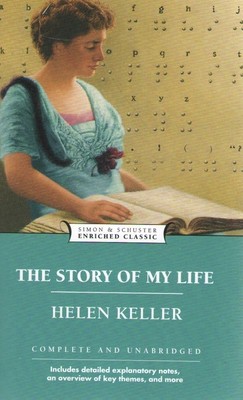 Front Cover | |
| Author | Helen Keller |
|---|---|
| Language | English |
| Genre | Classic, Memoir |
| Published | 1903 |
The Story of My Life, is an autobiography written by Helen Keller and published in 1903. detailing her early life, particularly her experiences with Anne Sullivan. [1] Portions of it were adapted by William Gibson for a 1957 Playhouse 90 production, a 1959 Broadway play, a 1962 Hollywood feature film, and the Indian film Black . The book is dedicated to inventor Alexander Graham Bell, who was one of her teachers and an advocate for the deaf.
